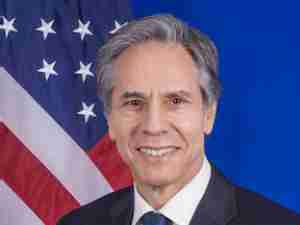Obama also prodded China to move to a "more market-oriented exchange rate," which he said would help put the global economy on a healthier path after the worst downturn in decades.
"We have to rebuild our economy on a new, stronger, more balanced foundation for the future, a foundation that will advance the American people's prosperity at home, and support American leadership in the world," Obama said in a speech at the U.S. Export-Import Bank's annual conference.
That means the United States cannot "stand on the sidelines" as other countries are busy negotiating trade deals, said Obama, who first announced his goal of doubling exports in five years in his State of the Union speech in January.
Republicans welcomed the focus on exports, but criticized Obama for not submitting free trade agreements with Colombia, Panama and South Korea to Congress that they say would help create hundreds of thousands of jobs.
"The White House says it'll bring those agreements forward 'at an appropriate time.' It would be hard to think of a more appropriate time than right now," said Senator Charles Grassley, the top Republican on the Senate Finance Committee.
High U.S. unemployment is fueling anxiety about trade and trade agreements, which many of the president's fellow Democrats blame for million of manufacturing job losses.
Obama again said his administration would work to resolve problems with the three deals, but gave no indication when he would ask lawmakers to vote on the pacts.
However, he touted talks that begin next week on the Trans-Pacific Partnership, a proposed regional trade agreement that would initially cover the United States, New Zealand, Singapore, Chile, Peru, Australia, Vietnam and Brunei.
"I believe (those talks) will result in a new standard for 21st century trade agreements that aren't just good for workers, businesses, and farmers, but also consistent with our most cherished values," Obama said.
The United States also remains committed to an ambitious and balanced agreement in the eight-year-old Doha round of world trade talks, he said.
Tougher Enforcement, Rebalancing Growth
Obama promised to do a better job than his predecessors in making sure other countries honor commitments they have made to open their markets, and said he would insist on trade agreements that protect worker rights and the environment.
"The fact is other countries haven't always played by the same set of rules. America hasn't always enforced our trade rights, or made sure that the benefits of trade are broadly shared," Obama said.
Many believe the biggest trade challenge the United States faces is China, which has kept its currency pegged at 6.83 yuan to the dollar since July 2008.
That infuriates many U.S. lawmakers, who say Beijing is holding down the value of its currency to give its companies an unfair price advantage in the international market.
Obama placed the issue in the context of the need for countries with big external deficits, like the United States, and big external surpluses, like China, to rebalance growth.
"China moving to a more market-oriented exchange rate would make an essential contribution to that global rebalancing effort," Obama said, steering clear of calling China a currency manipulator as many U.S. lawmakers contend.
Senator Sherrod Brown, a Democrat, urged Obama to ratchet up pressure on Beijing by formally labeling China a currency manipulator in an April 15 Treasury report.
Doubling exports over five years would require them to grow about 15 percent annually, a pace analysts say is ambitious but not impossible.
Obama laid out a number of measures he said would help boost exports, including the creation of a new $2 billion Export-Import Bank credit facility to help small and med








